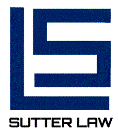Table of Contents
- What is a Form D?
- The purpose of Form D
- Why do I need a Form D?
- Form D details
- Form D is a requirement
Form D is a form used by startups to raise capital while remaining compliant with securities laws.
The SEC filing form is used to file a notice of an exempt offering of securities under Regulation D of the U.S. Securities and Exchange Commission.
The Commission’s rules require the notice to be filed by companies and funds that have sold securities without registration under the Securities Act of 1933 in an offering based on a claim of exemption under Rules 504 or 506 of Regulation D or Section 4(6) of that statute.
What is a Form D?
A Form D is a notice of an exempt offering of securities. It is a document that must be filed with the SEC by companies that are offering securities for sale under Regulation D of the Securities Act of 1933.
Regulation D provides exemptions from the registration requirements of the Securities Act for certain private placements of securities.
The purpose of Form D
is to provide the SEC and investors with information about the offering, including the type of securities being offered, the number of securities being offered, and the number of investors who have purchased the securities.
The information in Form D is used by the SEC to monitor private placements of securities and to detect fraud or other violations of securities laws.
Why do I need a Form D?
If your company is offering securities for sale, you need to file a Form D with the SEC.
Failure to file a Form D can result in fines, penalties, and legal action by the SEC.
- Compliance with securities laws: Filing a Form D is required by law for companies that are offering securities for sale. By filing a Form D, you are complying with the securities laws and avoiding potential legal issues.
- Protection against fraud: The information in Form D is used by the SEC to monitor private placements of securities and to detect fraud or other violations of securities laws. By filing a Form D, you are providing investors with transparency and protecting them from potential fraud.
- Access to capital: Filing a Form D can help you raise capital for your business. By offering securities for sale under Regulation D, you can raise capital from accredited investors without the need for a public offering.
- Reputation: Filing a Form D can help to establish your company’s reputation as a legitimate business. By complying with securities laws and providing transparency to investors, you are demonstrating your commitment to ethical business practices.
Form D details
basic information about a company for investors in the new issuance. The information may include the size and date of the offering, along with the names and addresses of a company’s executive officers.
This notice is an alternative to more traditional, lengthy reports when filing a non-exempt issuance. Companies that sell securities typically have to register with the Securities and Exchange Commission (SEC) under the Securities Act of 1933.
This is a long process and can make it complicated to follow and understand the law. Startups seeking capital can instead file a Form D which is a quicker and simpler process that protects the company from potential legal problems pertaining to new issuance.
Read Also: Form D California Requirements: 2025 Guide for Startups
Form D is a requirement
under Regulation D, which governs private placements of securities.
A private placement is a capital-raising event that involves the sale of securities to a relatively small number of select investors.
These investors are often accredited and can include venture capital firms, large banks, mutual funds, insurance companies, pension funds, family offices, hedge funds, and high and ultra-high-net-worth individuals.
Accredited investors usually earn over $200,000 a year or have a net worth of at least $1 million.
These investors typically have significant resources and experience, so disclosure requirements for a private placement are often minimal.
By either registering with the SEC or filing a Form D, a business has complied with securities laws pertaining to a capital-raising event.
- Timeliness: Form D must be filed with the SEC no later than 15 calendar days after the first sale of securities in the offering. If the first sale of securities occurs before the filing of Form D, the offering may no longer be exempt from registration, and the company may be subject to penalties and legal action.
- Completeness: Form D must be complete and accurate. The information provided in Form D must be consistent with the information provided in other documents related to the offering.
- Information Required: Form D requires information about the company, the securities being offered, and the offering itself. The following information is required on Form D:
- Name and address of the company
- Type of organization (e.g., corporation, limited liability company)
- State or country of incorporation
- Name and address of the company’s executive officers and directors
- Description of the securities being offered
- The total amount of securities being offered
- An exemption is claimed under Regulation D
- Use of proceeds from the offering
- Number of investors who have already purchased securities in the offering
- Date of the first sale in the offering
- Filing Fees: The SEC charges a filing fee for each Form D submitted. The fee must be paid at the time of filing and is based on the total amount of securities being offered.
- Amendments and Withdrawals: If there are material changes to the information provided in Form D, an amendment must be filed with the SEC. If the offering is canceled or terminated, a notice of withdrawal must be filed with the SEC.
Form D must be filed no later than 15 days after the first sale of securities, and must be filed annually if the offering reported on the original Form D is continuing on the anniversary date of the previous filing. Late filing penalties can be assessed, which vary from state to state.
If you are looking to issue securities to raise capital for your startup, please contact the experienced attorneys at Sutter Law today. We want to help you build the next big company!






